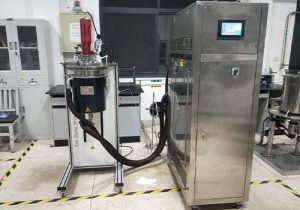cooling systems uk
Cooling Systems in the UK: A Comprehensive Guide
Introduction
Cooling systems play a crucial role in various sectors across the UK, from industrial manufacturing to commercial and residential buildings. These systems are designed to manage heat, ensuring the efficient operation of equipment and maintaining comfortable indoor environments. This article explores the types, working principles, applications, and regulatory landscape of cooling systems in the UK, providing a detailed understanding of their importance and functionality.

Types of Cooling Systems
Air Conditioning Systems: Used for cooling and dehumidifying indoor air in buildings. Common types include split systems, central air conditioning, and portable units.
Refrigeration Systems: Essential for preserving perishable goods in the food and beverage industry, pharmaceuticals, and cold storage facilities.
Evaporative Cooling Systems: Utilize water evaporation to cool air, often used in industrial and agricultural settings.
Chilled Water Systems: Use chilled water to absorb heat from buildings or industrial processes, commonly found in large commercial buildings and data centers.
Heat Pumps: Provide both heating and cooling by transferring heat between indoor and outdoor environments.
Working Principles
Cooling systems operate on various principles depending on their type:
Air Conditioning: Uses a refrigerant cycle to absorb heat from indoor air and release it outdoors.
Refrigeration: Employs a vapor compression cycle to remove heat from a confined space and maintain low temperatures.
Evaporative Cooling: Relies on the evaporation of water to cool air, which is then circulated through the space.
Chilled Water Systems: Circulate chilled water through coils to absorb heat from the air or process, which is then cooled by a chiller.

Heat Pumps: Transfer heat from one place to another using a refrigerant cycle, providing cooling in summer and heating in winter.
Applications
Cooling systems are used in a wide range of applications, including:
Commercial Buildings: Office spaces, retail stores, and hotels for maintaining comfortable indoor environments.
Industrial Processes: Cooling machinery and equipment in manufacturing and processing plants.
Data Centers: Managing heat generated by servers and IT equipment to ensure optimal performance.
Healthcare Facilities: Maintaining controlled environments in hospitals and laboratories.
Residential Buildings: Providing comfort in homes through air conditioning and heat pumps.
Regulatory Standards in the UK
The UK has established regulations to ensure the safety, efficiency, and environmental sustainability of cooling systems. Key regulations include:
F-Gas Regulations: Control the use of fluorinated greenhouse gases, promoting the use of low-GWP refrigerants.
Building Regulations: Set standards for energy efficiency and environmental performance in new and existing buildings.
Energy Efficiency Standards: Encourage the adoption of energy-efficient technologies to reduce carbon emissions.
Energy Efficiency and Sustainability
Energy efficiency is a critical consideration for cooling systems in the UK. Implementing energy-saving measures, such as variable speed drives, smart thermostats, and regular maintenance, can significantly reduce energy consumption and operational costs. Additionally, the use of eco-friendly refrigerants and renewable energy sources aligns with the UK’s sustainability goals by minimizing environmental impact.

Maintenance Practices
Regularly inspect and clean filters, coils, and ducts to ensure efficient operation.
Monitor refrigerant levels and check for leaks to maintain system performance.
Schedule professional maintenance to address potential issues and extend the system’s lifespan.
Use predictive maintenance technologies, such as IoT sensors, to monitor system health and prevent failures.
Environmental Considerations
The UK is committed to reducing the environmental impact of cooling systems. This includes phasing out high-GWP refrigerants, promoting the use of natural refrigerants, and implementing energy-efficient technologies. Businesses and individuals are encouraged to adopt sustainable practices, such as recycling refrigerants and optimizing system performance, to comply with environmental regulations and contribute to a greener future.
Conclusion
Cooling systems are essential for maintaining optimal temperatures in various applications across the UK. By understanding the types, working principles, applications, and regulatory landscape of cooling systems, businesses and individuals can optimize their operations for efficiency, sustainability, and compliance. Whether for industrial processes, commercial buildings, or residential comfort, cooling systems play a crucial role in ensuring the efficient operation of equipment and maintaining comfortable indoor environments.
Related recommendations
water cooled cooling system
608Water-Cooled Cooling Systems: Efficient Heat Management for Industrial and Commercial Applications Water-cooled cooling systems are essential in maintaining optimal temperatures in a variety of...
View detailsHow to Choose an Air-cooled Chiller?
1178How to Choose an Air-cooled Chiller? The first thing to consider when buying an air-cooled chiller is how to select it. Usually, we consider the following aspects: The cooling capacity of...
View detailsair cooled package unit
269IntroductionAn air - cooled package unit is a comprehensive HVAC solution that houses all major components within a single enclosure. This integration simplifies the overall system setup and oper...
View detailsmost economical small heater
529What is the Most Economical Small Heater? The most economical small heater is a compact and energy-efficient heating device designed to provide warmth in small spaces while keeping energy consu...
View details
 LNEYA Chiller
LNEYA Chiller






HelloPlease log in